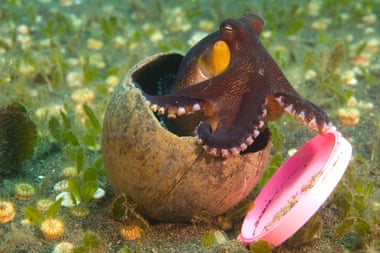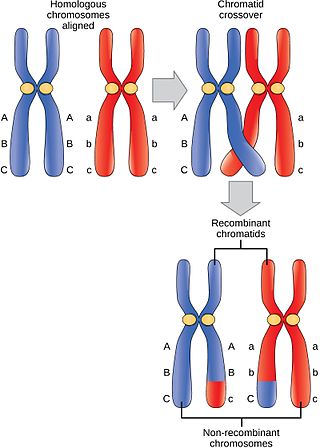Claire Whipple
I do not remember the first time I cried. Granted, I was only about twenty-four hours old (I know, I was one of those silent babes), but I have no recollection of the first tears I shed. Nor can I remember the first time I smiled, laughed, gasped, or expressed any other of those affectations that are universal to humankind. I have always wondered, however, at the reasoning behind why my infant mind resorted to such forms of emotional expression. In the womb, had I received chemical signals when my mother's hypothalamus secreted dopamine, causing me to associate the sound of her laughter with happiness? I was most curious about those human affectations that develop even before babies possess full visual acuity (around 6-8 months of age) because it was less likely that those expressions could be explained by the human practice of imitating visual cues. What is it in our internal hardware (what we biologists like to call DNA) that activates our tear glands when we experience intense sadness or joy? What are the evolutionary advantages of crying that have allowed it to manifest in every human being? I wanted to find out.
I do not remember the first time I cried. Granted, I was only about twenty-four hours old (I know, I was one of those silent babes), but I have no recollection of the first tears I shed. Nor can I remember the first time I smiled, laughed, gasped, or expressed any other of those affectations that are universal to humankind. I have always wondered, however, at the reasoning behind why my infant mind resorted to such forms of emotional expression. In the womb, had I received chemical signals when my mother's hypothalamus secreted dopamine, causing me to associate the sound of her laughter with happiness? I was most curious about those human affectations that develop even before babies possess full visual acuity (around 6-8 months of age) because it was less likely that those expressions could be explained by the human practice of imitating visual cues. What is it in our internal hardware (what we biologists like to call DNA) that activates our tear glands when we experience intense sadness or joy? What are the evolutionary advantages of crying that have allowed it to manifest in every human being? I wanted to find out.
 Today, most scientists agree that "tears are a form of social signaling that evolved from mammalian distress calls – a clear visual signal in other words that someone is in pain or danger and needs help." This explanation for tears is logical, especially when considering human babies and their inability to communicate. When infants feel any form of discomfort or stress, they often cry, simply because they have no other method of seeking assistance and alleviating their discomfort. This theory concerning lacrimation also holds true for adults, as the tears of an adult with a newly-broken leg will often result in their receiving medical assistance and support.
Today, most scientists agree that "tears are a form of social signaling that evolved from mammalian distress calls – a clear visual signal in other words that someone is in pain or danger and needs help." This explanation for tears is logical, especially when considering human babies and their inability to communicate. When infants feel any form of discomfort or stress, they often cry, simply because they have no other method of seeking assistance and alleviating their discomfort. This theory concerning lacrimation also holds true for adults, as the tears of an adult with a newly-broken leg will often result in their receiving medical assistance and support.  However, this theory does not explain why many only cry when they are removed from the presence of all others, or why someone would burst into tears while they're driving alone. In these cases, there is no one to which these social signals can be sent, yet these occurrences happen quite frequently. These more emotional tears contain higher levels of stress hormones than reflex or basal tears and are produced in response to a gamut of emotions, including stress, pleasure, anger, sadness, and suffering. They also include leucine enkephalin, an endorphin and natural painkiller that some scientists claim is responsible for the cathartic feeling one has after a hearty, blubbery cry. Basically, upon experiencing one of the aforementioned emotions, our hypothalamus produces the acetylcholine neurotransmitter, which then travels to the lacrimal gland to induce tear production. Many scientists have proposed differing purposes of these tears, such as to release stress hormones, to alert oneself of a problem that must be addressed, or simply to espouse vulnerability.
However, this theory does not explain why many only cry when they are removed from the presence of all others, or why someone would burst into tears while they're driving alone. In these cases, there is no one to which these social signals can be sent, yet these occurrences happen quite frequently. These more emotional tears contain higher levels of stress hormones than reflex or basal tears and are produced in response to a gamut of emotions, including stress, pleasure, anger, sadness, and suffering. They also include leucine enkephalin, an endorphin and natural painkiller that some scientists claim is responsible for the cathartic feeling one has after a hearty, blubbery cry. Basically, upon experiencing one of the aforementioned emotions, our hypothalamus produces the acetylcholine neurotransmitter, which then travels to the lacrimal gland to induce tear production. Many scientists have proposed differing purposes of these tears, such as to release stress hormones, to alert oneself of a problem that must be addressed, or simply to espouse vulnerability.Of course, societal and cultural factors play into why some prefer to cry in solitude rather than in company, or why males tend to cry less than females (even though some studies have found that a hormone in testosterone can reduce production of acetylcholine, which would inhibit tear production). But when it comes down to it, the common factor of tear shedding among hundreds of studies seems to be the utilization of empathy and the subconscious desire to do something when faced with an emotionally difficult problem, even when one is unable to solve it. So the next time you reach for that box of tissues, send your brain a silent thanks for using tears to express your emotions instead of incessant screaming or a mental breakdown.










































